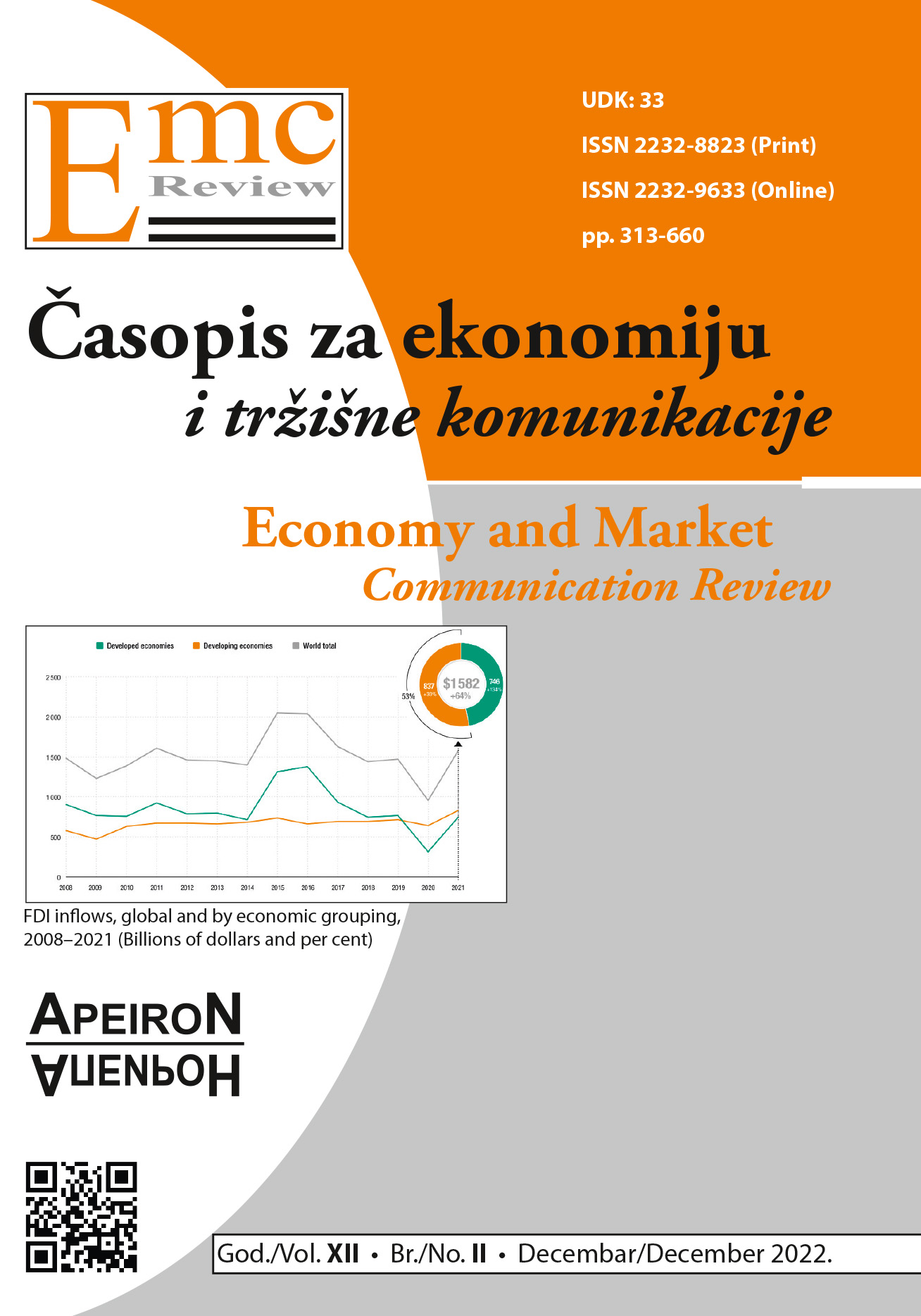INTANGIBLE STIMULATION AS A MANAGEMENT TASK TO INCREASE PRODUCTIVITY
DOI:
https://doi.org/10.7251/EMC2202476MAbstract
In order to achieve the quality of the economy, a correct and good relationship between managers and employees is needed. Managers have the task, among others, to create such a business environment in which employees will be satisfied with the work they perform, because employees who are satisfied with their position in the organization, who are ready to constantly learn and acquire new knowledge, improve their productivity and thereby contribute to themselves higher income and higher profit for the company. The task of operational managers, who are on the front line of cooperation with employees in various activities, includes various activities that can influence the improvement of productivity, efficient and effective work, while guiding employees towards the realization of overall organizational goals. In this sense, the task of operational managers extends to planning, recruiting and selecting workers, then managing their training and career monitoring, with constant measurement of employee performance and their contribution to the realization of the company’s overall task. It is necessary to create material and non-material reward mechanisms, with the aim of better motivation and retention of reliable and quality personnel. Intangible motivational factors do not cost much, but they can greatly contribute to increasing the quality of the economy, and for this reason, it is necessary to pay more attention to them. The main goal of the subject research is to determine the importance of non-material motivation of workers, as a specific activity in operational management and human resources management, while identifying trends in this area. For the purposes of this work, a random sample survey of employees was conducted in three organizations in Vranje, in order to examine how non-material motivation of employees affects their satisfaction and how much this type of reward means to them. The results obtained through research indicate the significant participation of non-material methods of stimulation in the improvement of productivity in organizations. Material motivators encourage employees by contributing to the improvement and ensuring the financial and material status of employees, so it represents financial and material compensation for the effort invested. Non-material motivation is no less important, considering that non-material motivators influence the increased work engagement of employees because they satisfy the needs of the so-called of a higher order, these are needs that are not exclusively economic, i.e. material nature. The results of the research presented in this paper show that more than half of the employees were rewarded non-materially, primarily through training in order to advance in their careers. By additional training and acquiring new knowledge, employees boost their productivity, which is reflected in the overall quality of business system economies, while achieving and maintaining a more permanent competitive advantage. The research also confirmed the initial hypothesis that intangible motivation strategies, primarily through employee training with seminars, workshops and team building, expand existing and enable the acquisition of new knowledge, which at the same time represents a way to increase productivity.
